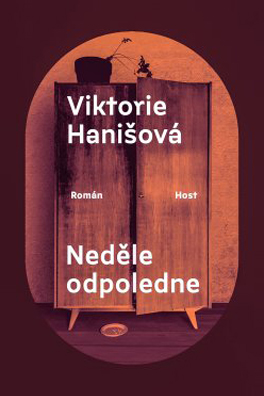
Original title: Neděle odpoledne
Genre: novel
Publisher:
Host, 2022
ISBN: 978-80-275-1362-8
Pages: 296
Foreign editions:
Macedonian (Muza, 2023, Igor Stanojoski)
Rights sold to:
Poland (Stara Szkoła), Austria (Wieser Verlag)
Every family has its traditions. Some have secrets besides.
Little Teo’s life moves to a slow, tedious rhythm. He is home-schooled by a reclusive mother who takes him to a religious community centre rather than for walks. Every Sunday afternoon, his father disappears. As Teo enters adolescence, goes off to school and makes a first friend, his weary routine starts to fracture. Before long, the cracks extend to family life as a whole, bringing silence, secrecy and sorrow to the fore. The older Teo gets, the more he pulls away from his family. And his life as an individual is anything but happy; it has an empty space that needs filling.
Sunday Afternoon is a story about the troubles and tragedies of one family, told from three points of view. What seems like madness to the son may make perfect sense to the mother or the father. This is a work about passing others by, but also about getting closer to them.
‘If we assume that each of us is a product of past actions, we are all to some extent victims of our parents. We tend to see things from our own traumatized perspective, and we often lack understanding for the viewpoints of others. Multiperspectivity can lead to greater tolerance, so promoting mutual understanding,’ wonders the author.
"Sunday Afternoon (…) might work as a postscript to the foregoing loose trilogy on disintegrating and damaged family ties, especially of the emotional kind, between mother and child, but it could also playfully expand this trilogy into a tetralogy. It’s still the same terrain, still the same starting points: mother, father, offspring, and then the world into which the adolescent offspring leaves or is banished — formed, or rather horribly deformed and damaged — supposedly for the sake of experience or simply out of necessity, out of dire necessity. (…) This is psychological prose written in realist fashion. Without poetry, but with elements of the detective and the mystery story, and above all with all possible nuances of language. (…)
Here, the family is not the foundation of the state, but more like a generator of loneliness and alienation; likewise, religion, whether sectarian or “non-sectarian”, emerges from this story as a hysteria-laced ideology that to a great extent suppresses human sanity and pushes adherents to (and sometimes beyond) the limits of normality — and what’s more: it drives the feeling like a nail into their head that faith makes them a better, higher quality person. (…) Coming from Viktoria Hanišová, this is presumably deliberate, targeted criticism. Just as the definite optimism of the last sentence, regarding forgiveness and acceptance, is also targeted, i.e the belief that even the worst can turn out if not quite marvellously then at least quite well."
Radim Kopáč, UNI
"In Sunday Afternoon, Hanišová also touches on a number of social issues and looks for parallels where we might not initially expect to find them: the way crooks treat pensioners in order to fob off overpriced pots on them in the novel is an analogy for the manipulation practised by the messiah in a religious community on his sheep, including Teo’s mother. It also deals with loneliness arising from the awareness of one’s own otherness. (…)
In an economical, matter-of-fact style the author succeeds in exposing the fragility and dysfunctionality of family relationships, which, perhaps more than by the tragic event itself, are killed off by the fact that they are basically not talked about."
Lucie Kukačková, DeníkN
"The three standpoints that [the author] plays around with, plus interesting elements like little Teo’s colloquial speech and such ills of society as the crooks and the sectarianism, together form a jigsaw that all fits together. The subject is supposed to have emerged from the author’s imagination, but it is so raw, so alive, that it could easily be happening behind the walls of the apartment next door, and that gives it an extra touch of chill.
Relationships can make for terrific novels and the way Viktorie Hanišová can tell ’em, the suspense makes you hold your breath from the very first page, as all you want to know is what happens next and above all where father goes on Sunday afternoons."
Jana Marxtová, Knižní novinky